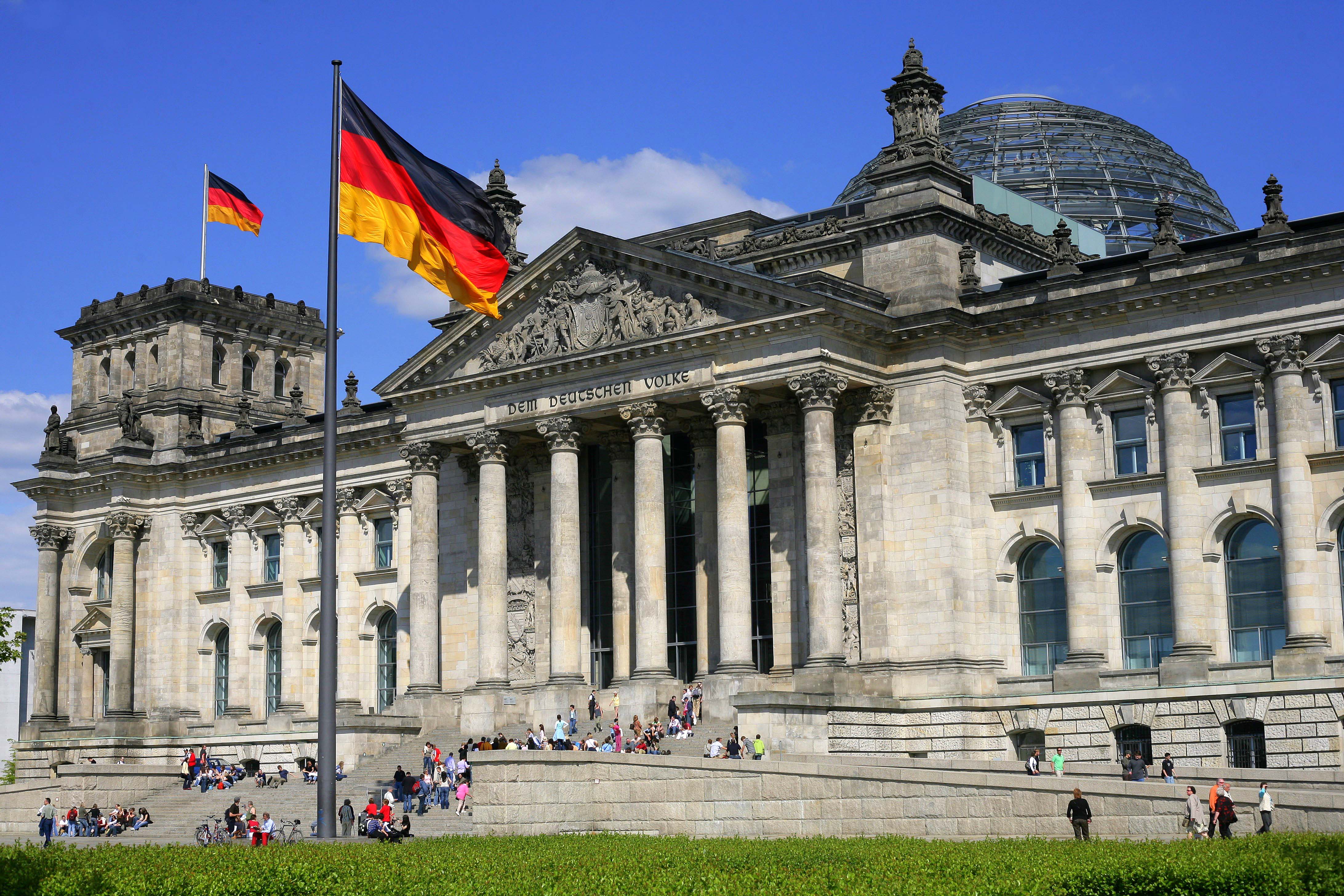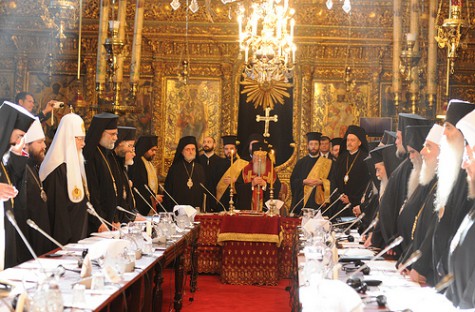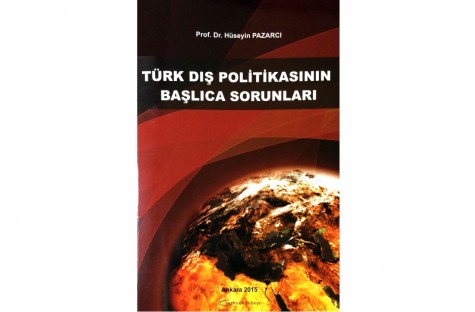
Germany is preparing to discuss a bill that characterizes the 1915 events as genocide in its Federal Assembly on June 2 and subsequently pass a resolution on this issue.[1] According to information gathered from Germany, German politicians are very keen on passing a resolution that characterizes the 1915 events as genocide and on placing the burden of genocide on Turkey. German media is currently focusing heavily on running programs with anti-Turkey themes and is constantly subjecting Turkey to various accusations. It is frequently being mentioned that the underlying reason for German media’s and politicians’ approach to Turkey is their apparent reaction and anger towards the current Turkish government.
Since there are about only 30,000 people of Armenian descent in Germany, it is not possible to attribute the desire to pass such a resolution in the Federal Assembly with the lobbying efforts of the Armenian diaspora. Instead, as indicated above, this desire is linked to the reaction felt in Germany towards Turkey.
Two points must be mentioned here; the ECHR’s Perinçek v. Switzerland case verdict and the verdict of the Constitutional Council of France’s verdict regarding the Gayssot Act. In both verdicts, a distinction has been made with the legally confirmed Holocaust and the 1915 events. In both verdicts, it has been indicated that the determination of whether or not any historical event constitutes genocide falls under the competence of tribunals authorized by the Genocide Convention of 1948. The ECHR delivered its verdict despite the intense lobbying of the Armenian diaspora (who basically turned the Perinçek v. Switzerland case into a life-or-death struggle). Moreover, considering the fact that France virtually spearheads the Armenian genocide allegations, the verdict delivered by the Constitutional Council of France becomes even more substantial.
The verdicts of ECHR and the Constitutional Council of France point to the fact that the characterization of historical events as genocide -in the absence of any verdict by competent tribunals- is legally invalid and as such carry no sanction power. Furthermore, as a country that has committed genocide in past, Germany knows fully well what “genocide” is exactly and how it should be determined. As such, the planned passing of a genocide resolution of the German Federal Assembly concerning the 1915 events is, without a doubt, related to the desire to put pressure on Turkey through an issue that is seen as a political leverage against it or to the desire to further the Turcophobia that is present in Germany and Europe as a whole.
Let us assume that Germany is taking the initiative regarding the genocide resolution because of its reaction and anger towards the Turkish government. However, it should be kept in mind that the current Turkish government is not in any way related to events that took place 101 years ago. As such, what Germany is actually doing with this initiative is to engage in a wholesale attack against Turkey and the Turkish people. This initiative also constitutes an attack against the 3 million people of Turkish descent living in Germany. In this respect, Germany’s initiative is very offensive and repugnant, and will furthermore backfire and fail to yield any useful results. Turkey will not change its views on the 1915 events as a result of Germany’s initiative. The only result that this initiative will yield will be the straining of bilateral relations between Turkey-Germany.
The text of the planned resolution also lists an important objective; as Germany, contributing to the rehabilitation of Turkish-Armenian relations and becoming intermediary for such a rehabilitation. How is Germany expecting to contribute to the rehabilitation of Turkish-Armenian relations by adopting a resolution that is based on a one-sided Armenian narrative regarding the 1915 events (a narrative that has been shaped by propaganda left over from World War I and by Turcophobia)? Considering the fact that Germany has currently adopted a very biased position, how is Germany expecting to assume the role of an intermediary? These are truly irrational and childish expectations.
Germany’s position regarding the 1915 events becomes even more bizarre when one looks at two relevant examples: Germany does not recognize as genocide the Holodomor that took place in 1932-33 (millions of people in Ukraine starved to death due to the famine that resulted from Soviet Union’s policies) or the systemic killings that was perpetrated in 1904-1908 by the German colonial administration in Namibia (referred to as South-West Africa during that time period).[2]
There are ongoing disputes over whether or not these two events constitute genocide. However, why does Germany, for example, ignore the more recent event like the Holodomor, and instead chooses to go back 101 years in the past to highlight the 1915 events? Even more serious than this example, Germany is still negotiating with Namibia on how to proceed regarding the 1904-1908 events in Namibia, for which Germany is being accused of having committed genocide.[3] It is also known that Germany is extremely uncomfortable with the issue of the 1904-1908 events and wishes to sweep this issue under the rug.[4] Why is Germany proceeding onto the 1915 events and making calls upon Turkey when it has not even finalized its own issue in which it is directly accused of genocide? Germany’s choice of actions concerning such matters points to the fact that the issue here is not about facing the past, but about political calculations.
All these inconsistencies and political calculations have resulted in reactions in the Turkish public. For example, having analyzed Germany’s initiative concerning the 1915 events, experienced politician (R) Ambassador Şükrü Elekdağ has stated that Germany has virtually turned the genocide accusation against Turkey into a state policy.[5] According to Elekdağ, the underlying reasons for Germany’s genocide accusation are as follows:
“1) Germany’s desire to ease its sense of burden by finding an accomplice due to being crushed under the weight of its guilt [of the Holocaust]
2) The historical animosity felt by Protestant churches against Turks.
3) Forever blocking Turkey’s path towards EU membership.
4) Easing the assimilation of Turks in Germany by shattering their sense of Turkish honor.”
According to Elekdağ’s analysis, Germany is approaching Turkey and Turks in a manner that is far removed from what can be deemed as friendly. Then again, there is nothing surprising about Elekdağ’s comments; after news surfaced in 2014 that Germany was eavesdropping on Turkey, German officials indicated that although Turkey is Germany’s ally, it is not considered to be in the “friendly” country category.[6]
Another noteworthy response to the German initiative has come from the researcher Şükrü Server Aya, who is known for his substantial amount of work regarding the 1915 events. Şükrü Server Aya and his colleagues sent an open letter (containing many archival documents) to the German Federal Assembly that criticizes Germany’s position and calls upon Germany to adopt a more balanced position.
When discussing the planned resolution in the Federal Assembly on 2 June, German politicians need to ask themselves the following questions: Is Germany willing to turn one of its important allies, with which it has close relations in all aspects (historically, culturally, politically, and economically), into an enemy by employing a highly offensive and repugnant method? If it is willing to do this, what kind of positive results will such an initiative yield for Germany?
* Photo: Wikipedia
[1] The Turkish translation of the text of bill was released to the public by Doğu Perinçek: “Alman Meclisi'nin tanımak istediği "Ermeni soykırımı" tasarısı ortaya çıktı”, Oda TV, http://odatv.com/alman-meclisinin-tanimak-istedigi-soykirim-tasarisi-ortaya-cikti-2005161200.html
[2] “International recognition of Holodomor - States that recognized Holodomor as an act of genocide against the Ukrainian people”, Embassy of Ukraine to Canada, http://canada.mfa.gov.ua/en/ukraine-%D1%81%D0%B0/holodomor-remembrance/holodomor-international-recognition ; Kuzeeko Tjitemisa, “Ovaherero/Nama to drag Germany to Hague over genocide”, New Era, https://www.newera.com.na/2016/05/19/ovahereronama-drag-germany-hague-genocide/
[3] Kuzeeko Tjitemisa, “Namibia: Genocide Negotiations to Be Finalised By December”, All Africa, http://allafrica.com/stories/201605100486.html
[4] “Policy of Mass Killings in the Early 20th Century in Colonial Africa: The Case of Genocide in Namibia and the Lessons Learned”, AVİM, conference book, http://avim.org.tr/images/uploads/Rapor/toplanti-16-ing.pdf
[5] Dr. Şükrü M. Elekdağ, “Alman Parlamentosu Türkiye’yi Sözde Ermeni Soykırımıyla Suçlamaya Hazırlanıyor (1) – Milliyet”, AVİM Blog, http://avim.org.tr/Blog/ALMAN-PARLAMENTOSU-TURKIYE-YI-SOZDE-ERMENI-SOYKIRIMIYLA-SUCLAMAYA-HAZIRLANIYOR-1-MILLIYET
[6] “German spying report angers Turkey, embarrasses Berlin”, Reuters, http://www.reuters.com/article/us-turkey-germany-spying-idUSKBN0GI0TZ20140818
© 2009-2025 Center for Eurasian Studies (AVİM) All Rights Reserved
No comments yet.
-
 INTERNATIONAL HRANT DINK AWARDS AND TANER AKÇAM
INTERNATIONAL HRANT DINK AWARDS AND TANER AKÇAM
Mehmet Oğuzhan TULUN 30.09.2015 -
 NAGORNO-KARABAKH AND CRIMEA: A COMPARISON OF DOUBLE STANDARDS
NAGORNO-KARABAKH AND CRIMEA: A COMPARISON OF DOUBLE STANDARDS
Mehmet Oğuzhan TULUN 31.03.2014 -
 TÜRKİYE’S SOUTH CAUCASUS POLICY AND THE WEST’S CONFLICTING APPROACH
TÜRKİYE’S SOUTH CAUCASUS POLICY AND THE WEST’S CONFLICTING APPROACH
Mehmet Oğuzhan TULUN 09.01.2025 -
A POSITIVE SHIFT IN THE VATICAN’S HISTORICAL NARRATIVE
Mehmet Oğuzhan TULUN 04.02.2016 -
 ORTHODOX COUNCIL TO MEET AFTER 1200 YEARS
ORTHODOX COUNCIL TO MEET AFTER 1200 YEARS
Mehmet Oğuzhan TULUN 09.04.2014
-
 BEYOND DOUBLE STANDARDS IN THE BALKANS: REBUILDING TRUST IN OSCE ELECTION MONITORING
BEYOND DOUBLE STANDARDS IN THE BALKANS: REBUILDING TRUST IN OSCE ELECTION MONITORING
Teoman Ertuğrul TULUN 18.04.2025 -
DIASPORA ARMENIANS AND THEIR INITIATIVES FOR COMPENSATION: THE REFLECTIONS OF THE MOVSESIAN CASE II
Aslan Yavuz ŞİR 29.02.2012 -
 POPE'S CARELESSNESS
POPE'S CARELESSNESS
Ali Murat TAŞKENT 11.05.2015 -
 BOOK REVIEW: “TÜRK DIŞ POLİTİKASININ BAŞLICA SORUNLARI” (MAJOR ISSUES OF THE TURKISH FOREIGN POLICY)
BOOK REVIEW: “TÜRK DIŞ POLİTİKASININ BAŞLICA SORUNLARI” (MAJOR ISSUES OF THE TURKISH FOREIGN POLICY)
Hazel ÇAĞAN ELBİR 06.08.2015 -
ECONOMIC CRISIS IN THE EUROPEAN UNION AND THE GREEK ADMINISTRATION OF SOUTHERN CYPRUS
Alev KILIÇ 14.01.2013
-
25.01.2016
THE ARMENIAN QUESTION - BASIC KNOWLEDGE AND DOCUMENTATION -
12.06.2024
THE TRUTH WILL OUT -
27.03.2023
RADİKAL ERMENİ UNSURLARCA GERÇEKLEŞTİRİLEN MEZALİMLER VE VANDALİZM -
17.03.2023
PATRIOTISM PERVERTED -
23.02.2023
MEN ARE LIKE THAT -
03.02.2023
BAKÜ-TİFLİS-CEYHAN BORU HATTININ YAŞANAN TARİHİ -
16.12.2022
INTERNATIONAL SCHOLARS ON THE EVENTS OF 1915 -
07.12.2022
FAKE PHOTOS AND THE ARMENIAN PROPAGANDA -
07.12.2022
ERMENİ PROPAGANDASI VE SAHTE RESİMLER -
01.01.2022
A Letter From Japan - Strategically Mum: The Silence of the Armenians -
01.01.2022
Japonya'dan Bir Mektup - Stratejik Suskunluk: Ermenilerin Sessizliği -
03.06.2020
Anastas Mikoyan: Confessions of an Armenian Bolshevik -
08.04.2020
Sovyet Sonrası Ukrayna’da Devlet, Toplum ve Siyaset - Değişen Dinamikler, Dönüşen Kimlikler -
12.06.2018
Ermeni Sorunuyla İlgili İngiliz Belgeleri (1912-1923) - British Documents on Armenian Question (1912-1923) -
02.12.2016
Turkish-Russian Academics: A Historical Study on the Caucasus -
01.07.2016
Gürcistan'daki Müslüman Topluluklar: Azınlık Hakları, Kimlik, Siyaset -
10.03.2016
Armenian Diaspora: Diaspora, State and the Imagination of the Republic of Armenia -
24.01.2016
ERMENİ SORUNU - TEMEL BİLGİ VE BELGELER (2. BASKI)
-
AVİM Conference Hall 24.01.2023
CONFERENCE TITLED “HUNGARY’S PERSPECTIVES ON THE TURKIC WORLD"









